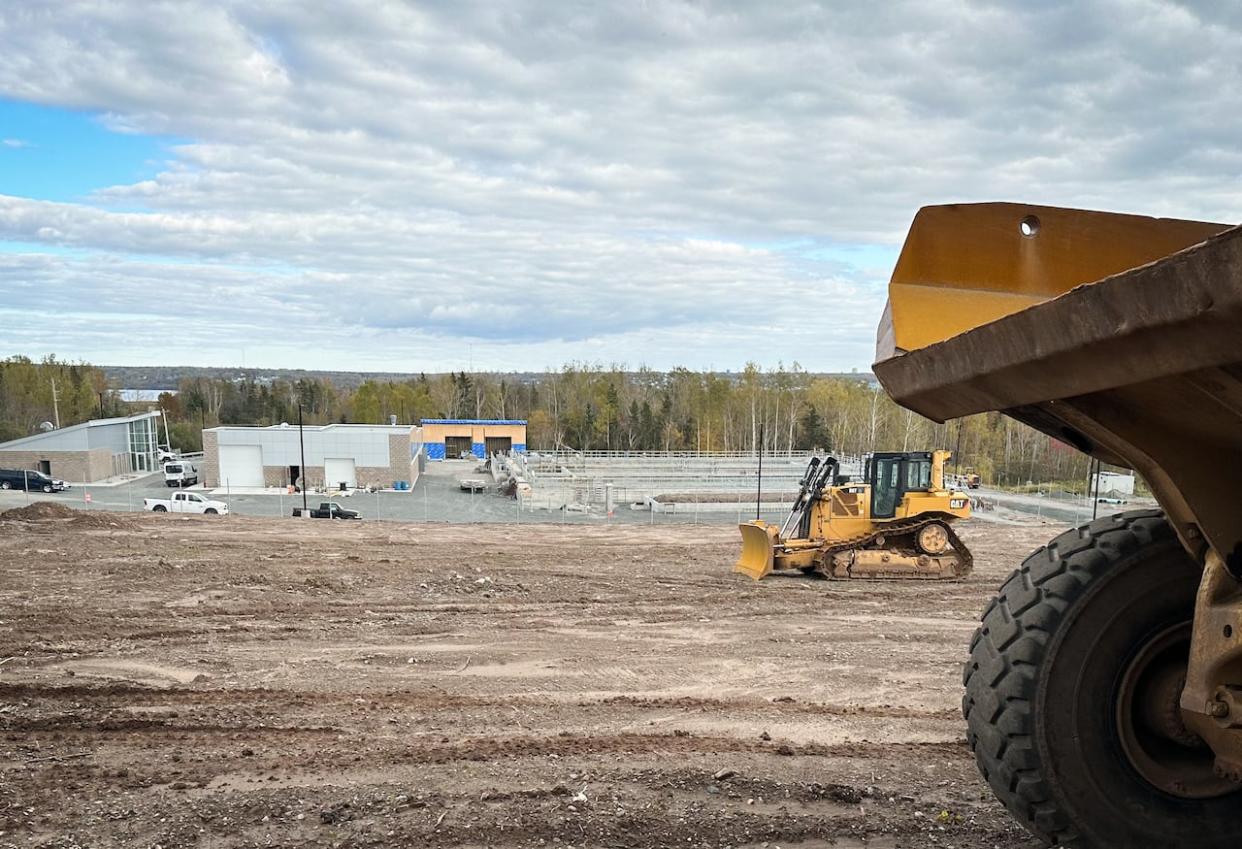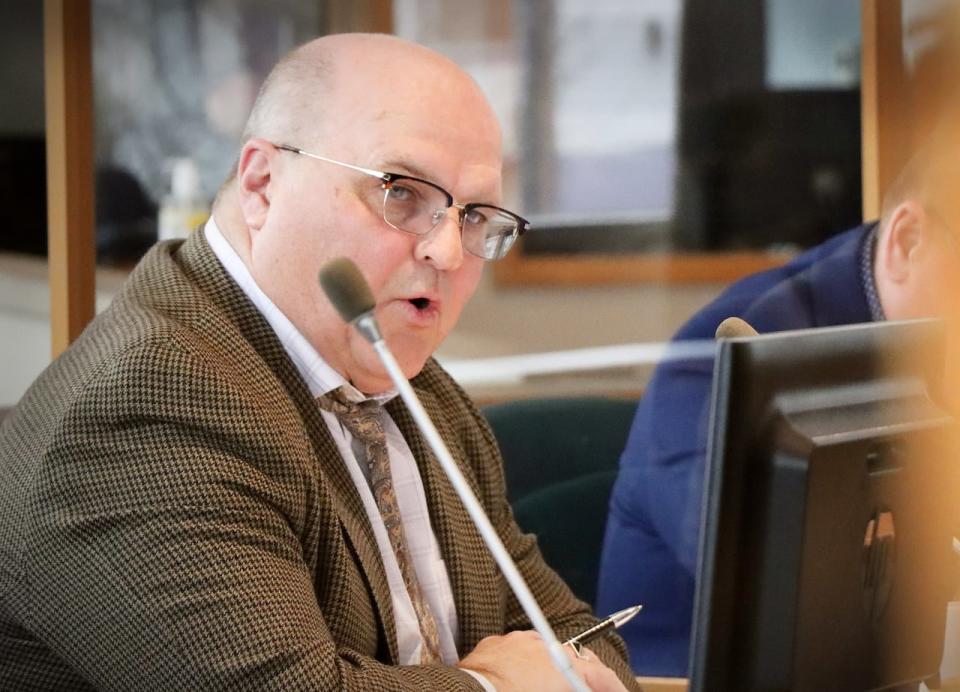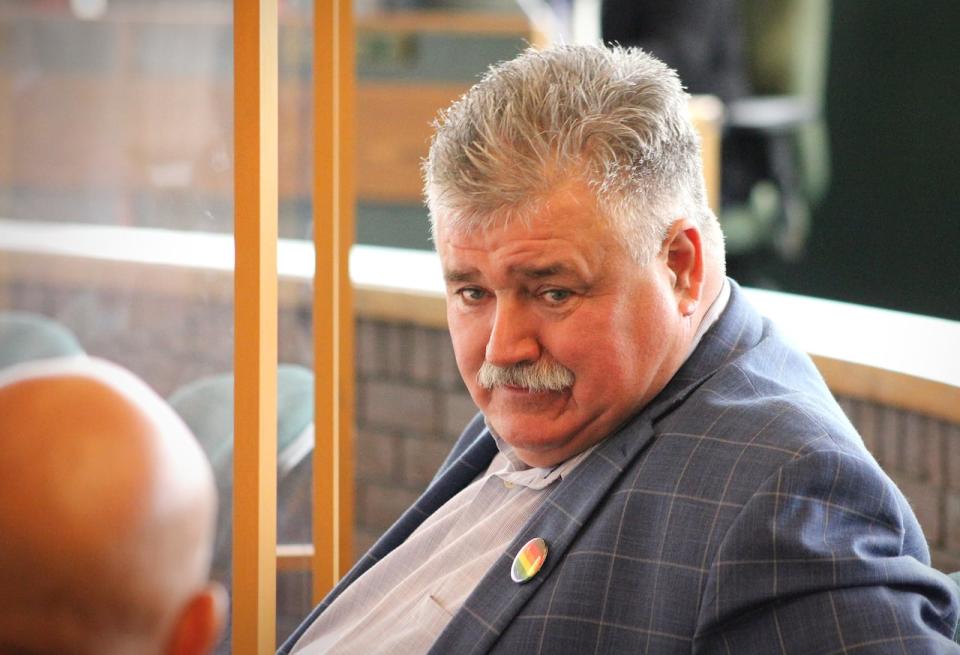Numbers show CBRM sewer fees will wipe out tax-cut savings in this year's budget

New numbers from Cape Breton Regional Municipality show that for the average property owner, the tax cut in last week's budget will mostly be eaten up by new sewer utility charges.
Coun. Lorne Green was the only one to vote against the budget, saying average homeowners won't be paying less overall, despite the tax-rate decrease.
"The person's house that is assessed at $100,000, theirs is not going to change, but yet if you live in a $400,000 home, they're going to get a tax decrease," he said.
Last week, CBRM council eliminated the sewer levy of 19.1 cents per $100 of assessment on those properties connected to a municipal wastewater system and replaced it with user fees paid to the water utility based on water consumption.
The proposed fees were not presented or discussed during the budget talks, but new figures show the impact will depend on how much water is used.
Sewer fees estimated
According to chief financial officer Jennifer Campbell, the municipality has estimated yearly sewer charges for three scenarios:
Below-average annual water use (109.5 cubic metres) - $245.89;
Average annual water use (153.99 cubic metres) - $279.25;
Above-average annual water use (219.0 cubic metres) - $328.01.
In addition to eliminating the sewer tax, council voted to decrease the hydrant rate for affected properties and increased the transit rate on those near a public transportation route.
The provincial government also eliminated the tax on all properties for housing and corrections.
Figures presented during budget talks show an average homeowner whose property is assessed at $120,000 will save $247.92. The bulk of that savings, $229.20, is due to scrapping the sewer tax.
But an average water user, according to the new figures, will pay about $32 more than that in sewer fees, at $279.25.

Deputy Mayor James Edwards says lower-value properties will not benefit as much from the shift from a wastewater tax to user fees, but it will mostly balance out. (Tom Ayers/CBC)
Deputy mayor James Edwards said that's true, but shifting from a tax levy for sewer service to a user-pay system is more fair.
"We thought it would be roughly a balanced affair, where yeah, there's going to be a reduction in the tax rate, but when you add in the water utility, it's basically going to balance out."
When the shift from a tax to a user fee was discussed in December, Coun. Darren Bruckschwaiger expressed some concern for low-income property owners.
In an interview last week, he said CBRM offers a property tax rebate to low-income homeowners, but council had little choice on sewer fees.

CBRM Coun. Darren Bruckschwaiger says the cost of wastewater treatment and collection continues to rise and it has to be paid for one way or another. (Tom Ayers/CBC)
The cost of wastewater collection and treatment keeps going up due to federal regulations that have forced CBRM to spend millions of dollars to stop sending untreated waste into the ocean, Bruckschwaiger said.
"There will always be a concern for me with low-income people, but at the end of the day, we've got to pay for it," he said.
"That money's got to come from somewhere, unfortunately."
Later this year, CBRM is expected to apply to the Nova Scotia Utility and Review Board to create a new wastewater utility, under which rates would be regulated and the public would have a say.
Opportunity to lower costs
Meanwhile, Bruckschwaiger said anyone who wants to estimate the impact of the switch from a tax to a user fee can expect to pay roughly 50 per cent more on their annual water bill.
Under the new system, people now have the opportunity to lower their own cost by reducing water consumption, he said.
Bruckschwaiger said he will take advantage of that by finding a way to use less municipal water on the flowers in his yard.
"I should have done it years ago, but now I'll do it for sure," he said.
"I'll [get] a rain barrel, hook it to my gutter and put a hose on the bottom of that and we'll be using that more."
MORE TOP STORIES


